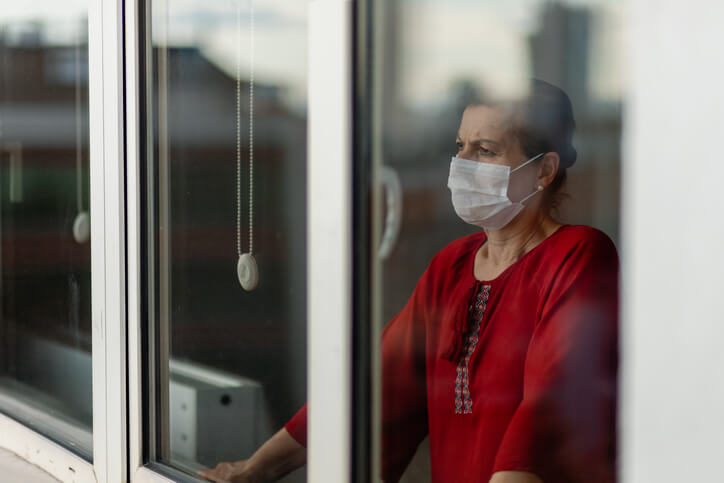More Questions About COVID-19?
Trust Baptist Health to provide the information you need to keep your family well.
Learn More
Social isolation is dangerous and can cause serious repercussions to your health. As humans, we’re naturally social, and staying engaged with other people is good for our health, psychologically, emotionally, and physically. Social isolation has been linked to higher blood pressure and cardiovascular disease, vulnerability to infection, and an over-active immune response. Yet, depression remains as one of the major health risks most associated with social isolation.
People of all ages can become depressed from isolation, although it’s more common for someone with depression to isolate themselves, which further impacts their depression. Older individuals are more susceptible to this because many live alone and have lost friends from death. And now, with social isolation increasing nationwide due to COVID-19, more people are noticing the effects as it relates to their mental health.

Trust Baptist Health to provide the information you need to keep your family well.
Learn MoreIsolation can have a serious impact on your mental health. It can disrupt your sleep patterns, focus, and negatively impact verbal and logical reasoning. There are several illnesses that individuals in isolation are susceptible to, including but not limited to:
• Cognitive decline
• Alzheimer’s Disease
• Dementia
• Depression
• Neuroticism
• Hallucinations
If a friend or loved one is showing signs of becoming significantly socially withdrawn, it’s important to get involved. Do what you can to engage that person and push them to get treatment. Here’s what you can do:
• Reach out and talk with them. Approaching someone about their depression and social withdrawal isn’t always easy, but it’s really important to do so. If you don’t know what to say, just listen. Just having someone let them know that they care about you is powerful.
• Get them out of the house. Simply getting them out and about can make a huge difference to someone who’s struggling, but it might take some pushing on your end to make it happen. A simple walk in the park or a visit to a coffee shop are low-pressure ways to get them out of the house.
• Help them connect with other people. Helping your friend find a support group for depression can help them get out of a period of withdrawal. If they’re not ready for that step, bring another friend or family member who you know can be positive and supportive.
• Encourage healthy habits and discourage bad ones. Isolation is an unhealthy response to depression. Substance abuse is also common with depression and can be dangerous and worsen depressed moods. Instead, encourage them to take walks, or make healthy, homemade dinners.
If you or a loved are showing signs of depression from social isolation, contact your nearest Baptist Health location today.
Next Steps and Useful Resources